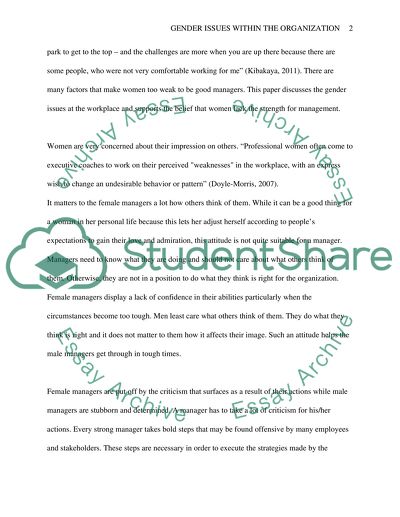Cite this document
(Gender Issues within the Organization Essay Example | Topics and Well Written Essays - 2500 words, n.d.)
Gender Issues within the Organization Essay Example | Topics and Well Written Essays - 2500 words. Retrieved from https://studentshare.org/gender-sexual-studies/1393891-gender-issues-within-the-organisation
Gender Issues within the Organization Essay Example | Topics and Well Written Essays - 2500 words. Retrieved from https://studentshare.org/gender-sexual-studies/1393891-gender-issues-within-the-organisation
(Gender Issues Within the Organization Essay Example | Topics and Well Written Essays - 2500 Words)
Gender Issues Within the Organization Essay Example | Topics and Well Written Essays - 2500 Words. https://studentshare.org/gender-sexual-studies/1393891-gender-issues-within-the-organisation.
Gender Issues Within the Organization Essay Example | Topics and Well Written Essays - 2500 Words. https://studentshare.org/gender-sexual-studies/1393891-gender-issues-within-the-organisation.
“Gender Issues Within the Organization Essay Example | Topics and Well Written Essays - 2500 Words”, n.d. https://studentshare.org/gender-sexual-studies/1393891-gender-issues-within-the-organisation.


